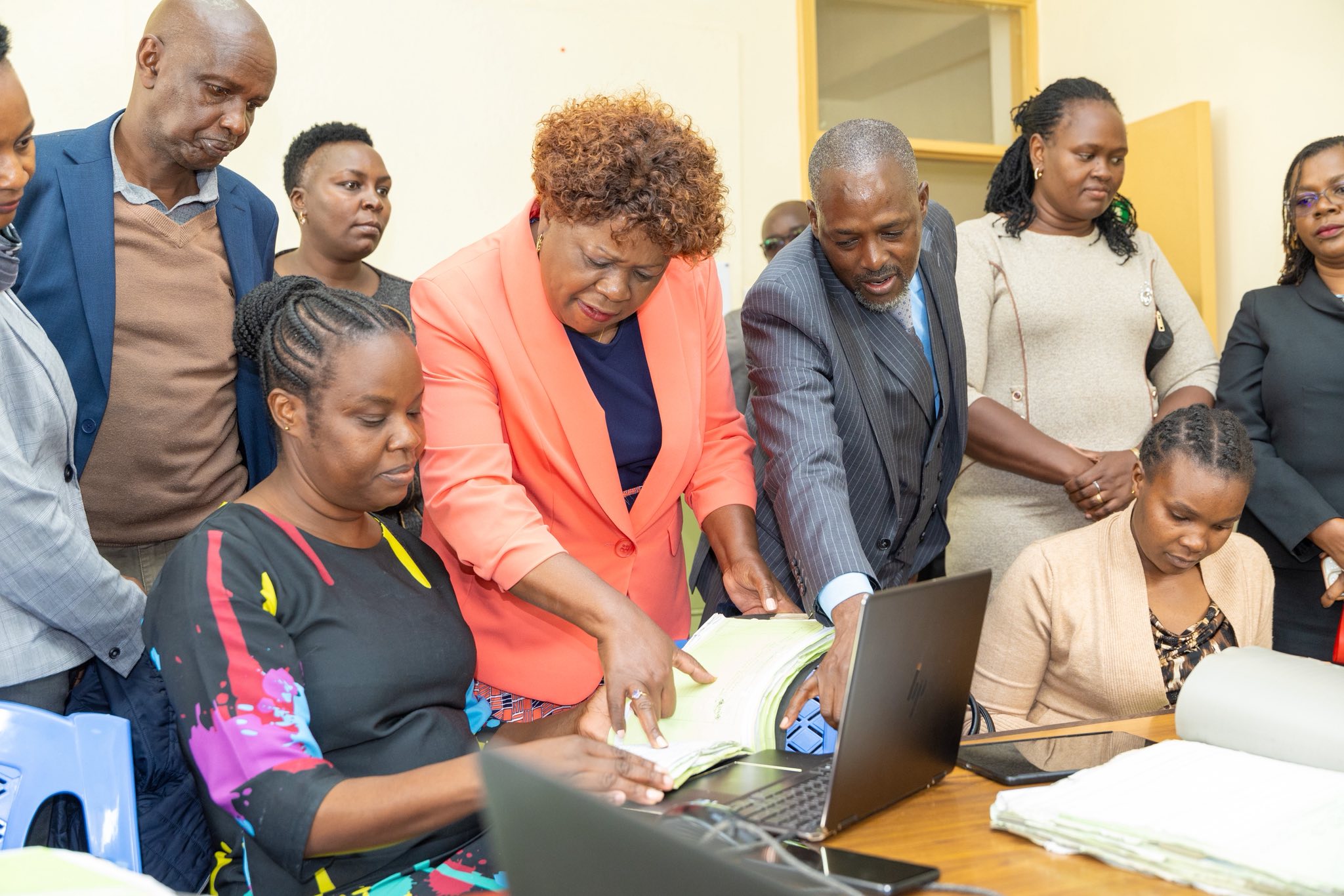 Lands Cabinet Secretary Alice Wahome inspecting Kiambu lands registry on June 24, 2025
Lands Cabinet Secretary Alice Wahome inspecting Kiambu lands registry on June 24, 2025Lands Cabinet Secretary Alice Wahome has issued a stern warning to lands officials to seal loopholes leading to revenue loss within registries.
Increasing their revenue collection will make it possible for the government to enhance its service delivery, Wahome said.
The CS, who spoke while inspecting Kiambu and Ruiru Lands Registries, said most of these collect revenue that is far below their potential.
She cited the Thika registry that collected Sh80 million in the 2023/2024 financial year and about Sh150 million in the 2024/2025 financial year.
"I want to double the target for this registry. In seven months since July last year, it was able to collect Sh84 million. This shows that it has the capacity to collect much more if all loopholes are sealed," she stated.
The registry will now be required to raise Sh300 million from stamp duties, survey fees, registration fees and valuation fees, among other charges.
Increased revenue, she said, would make it easier for the government to reduce taxes imposed on other sectors and lessen the cost of living.
"We all know Kenyans want development which is supported by the revenue collected. The planned development programmes have to match with the revenue collected," she added.
The CS noted that many Kenyans don’t like to pay taxes, adding that some people collude with registries’ officials to avoid paying some of the fees, denying the government revenue.
Officers in her ministry have been sensitised on the need to actualise the goal and drastically raise the collections.
"Tax evasion is the greatest impediment in this ministry’s quest to meet revenue targets and we have agreed with lands officers countrywide that if you lose the stamp duty before it reaches the next level, then it means an officer is colluding with the people seeking services."
In Kiambu, landowners pay 4 per cent of the land value as the stamp duty, with the valuers tasked with the role of establishing the exact value of the land.
The CS said in many instances, residents undervalue the land to avoid paying a higher stamp duty, resulting in huge revenue losses for the government.
Her ministry will use Thika registry as an example of how others can transform revenue collection while enhancing services.
"We don’t want to just focus on the revenue without considering the services we’re offering and whether or not they’re appreciated and the challenges faced in delivery of the services," the CS said.
She instructed land registrars to work seamlessly with the valuers so that Kenyans can access services easily and get value for the fees they pay.
Wahome also cited Kiambu registry that she said has the capacity to lead in revenue collection nationally due to its proximity to the capital city.
"I have made it clear any loopholes that allow the loss of public funds must be sealed. Accountability is not optional. Every coin we safeguard strengthens our ability to deliver better, faster and more transparent services to Kenyans."
The government’s bid to digitise the registries is aimed at eliminating manual inefficiencies, curbing fraud, securing land records and enhancing access to services.
The move, she said, will rebuild public trust by curbing land fraud and saving Kenyans from the agony of gruelling land transfer processes.
Digitisation will bring to an end the issue of missing files as it will enable comprehensive data records that will make land transactions easy.
The ministry is also considering establishing a recognition award for the best land registry to encourage better performance.
"We are working diligently to streamline land transactions and strengthen accountability at all levels, improving service delivery isn’t just a goal, it is a commitment to the Kenyan people,” she said.
Instant Analysis
Nationally, the government raises about Sh15 billion from all 61 land registries, an amount that the CS said can be doubled with close monitoring and supervision of revenue collection. Wahome said tax evasion is the greatest impediment in the ministry’s quest to meet revenue targets, as those seeking services collude with officials to avoid paying the necessary fees.











